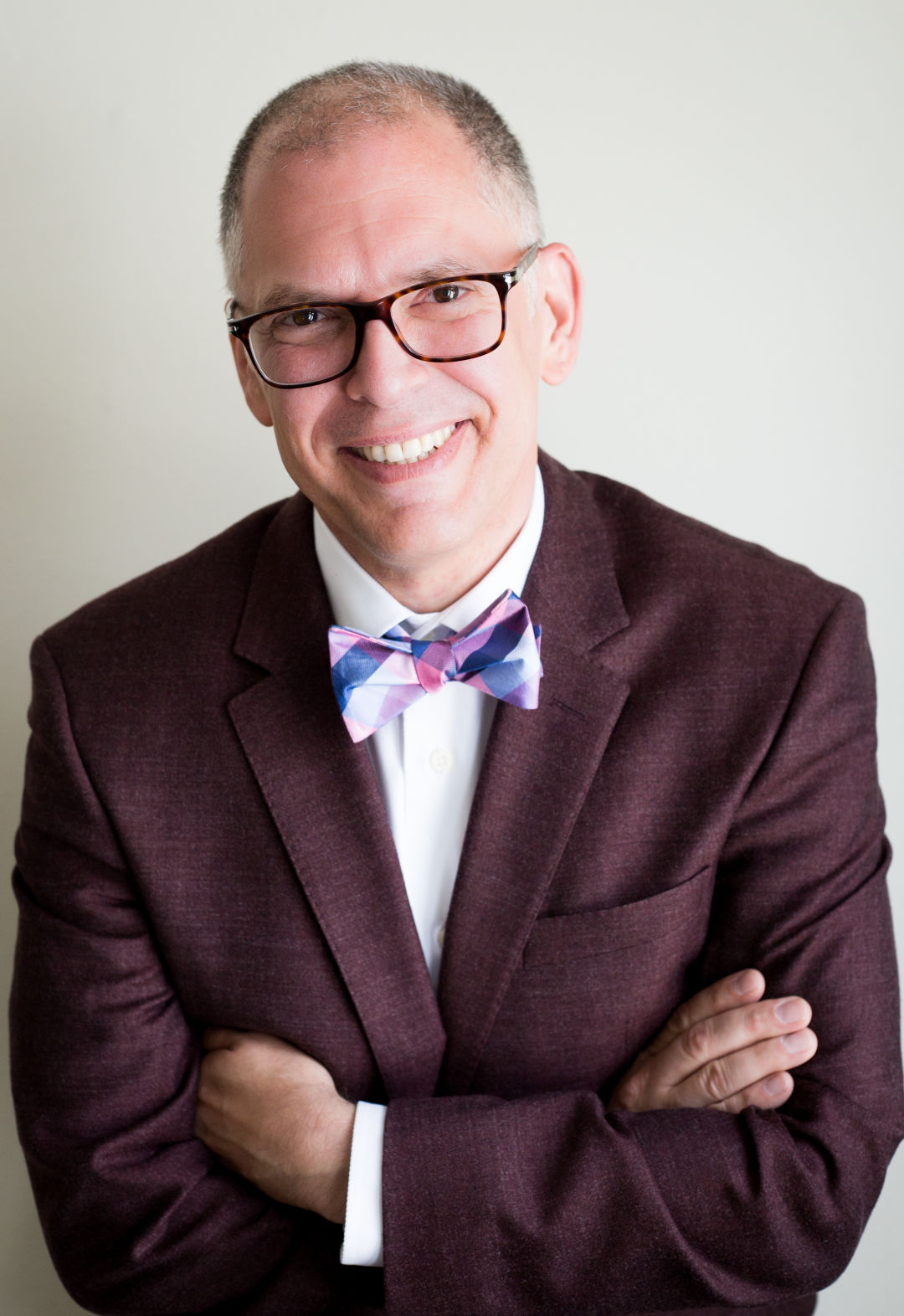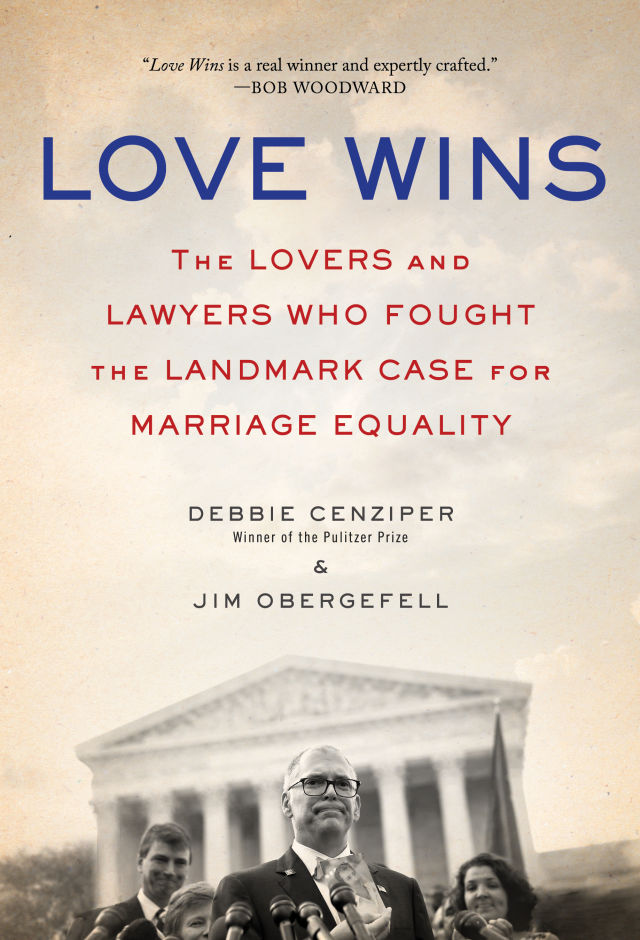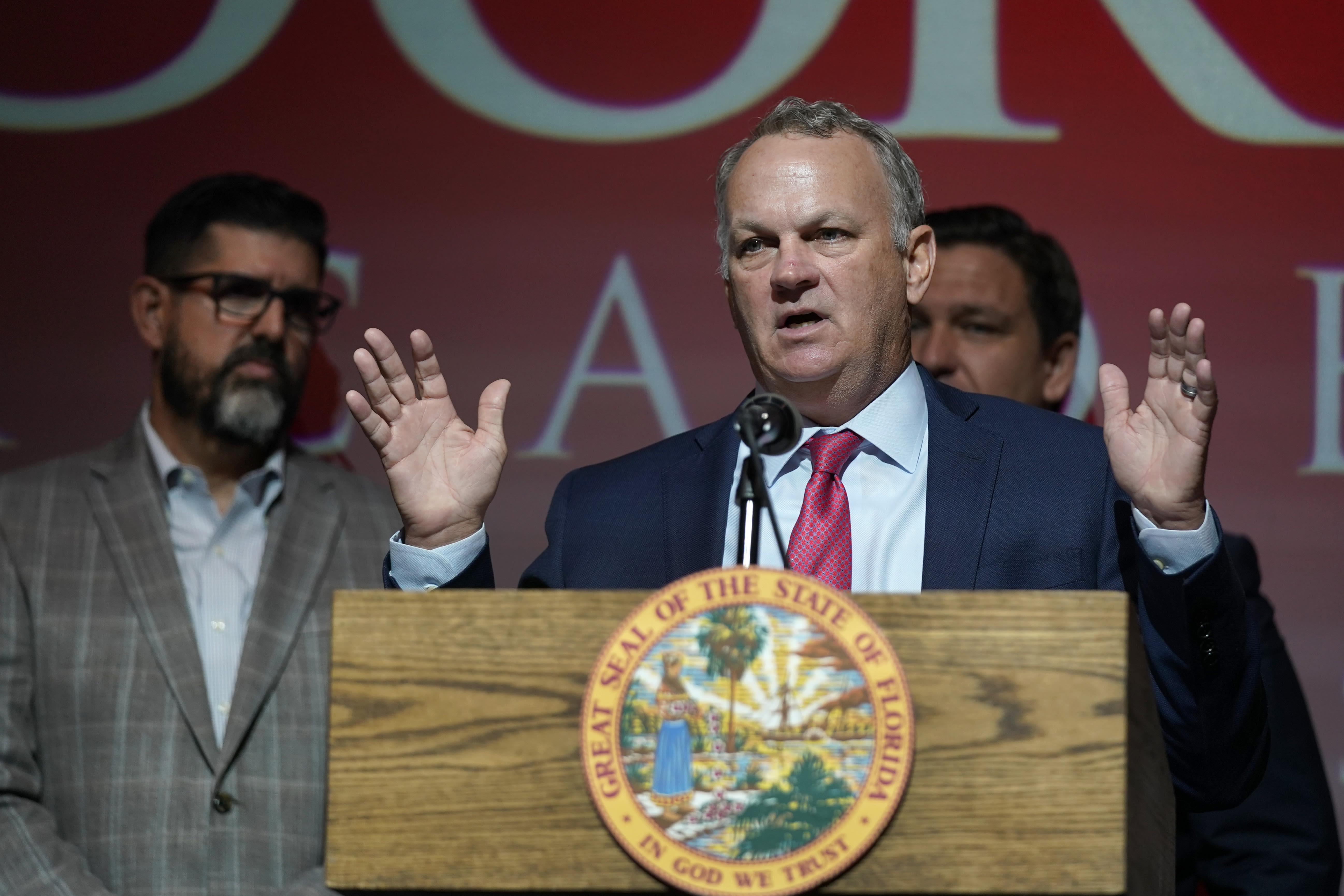How This Supreme Court Marriage Equality Plaintiff Went From "Accidental" Activist to Just Plain Activist

Jim Obergefell
Image: Emma Parker Photography
Jim Obergefell never thought his last name would one day become famous, but it is, thanks to Obergefell v. Hodges, 2015's landmark Supreme Court decision that established the right of gays and lesbians to get married in every state in America.
Since last June, Obergefell has been racing around the country, meeting with LGBT activist groups, speaking to audiences and penning and promoting the book he co-wrote with Washington Post reporter Debbie Cenziper, Love Wins: The Lovers and Lawyers Who Fought the Landmark Case for Marriage Equality. Obergefell, who just recently moved to Washington, D.C., from Cincinnati, Ohio, met his longtime partner John Arthur in 1992. The couple flew to Maryland after the state legalized same-sex marriage and tied the knot in 2013. Arthur died from ALS three months after the ceremony, but before he died, the couple filed a lawsuit to have Obergefell named as Arthur's surviving spouse, touching off a legal saga that, when combined with other legal actions related to same-sex marriage, eventually reached the Supreme Court and changed American law.
Obergefell hits Sarasota on Wednesday, Oct. 26, for a conversation that is part of New College of Florida's New Topics New College series. That discussion will be followed by a reception honoring Obergefell and benefitting New College's Gender Studies Program. The conversation is free, but seating is limited and reservations are encouraged; a ticket to the reception costs $125, which includes a copy of Love Wins.
In a recent conversation with Sarasota Magazine, the 50-year-old Obergefell still seemed amazed that anyone would care to hear him speak. "It just seems so bizarre that my face can bring in people who might otherwise not show up," he says. We talked about how the legal fight for marriage equality changed his life, the LGBT struggles to come and the moment he went from being an "accidental activist" to simply an activist.
Sarasota Magazine: What have you been up to since the Supreme Court ruling?
Jim Obergefell: I never thought my life would consist of speaking engagements and book tours, so it's been a surprise and it's been something new and different for me. I get to talk about not just my story but also the bigger fight for LGBTQ equality and it's been an honor and a pleasure. I see people all across the country who want nothing more than to talk to me about what this fight meant to them.

The cover of Love Wins: The Lovers and Lawyers Who Fought the Landmark Case for Marriage Equality, written by Jim Obergefell and Washington Post reporter Debbie Cenziper
Image: Courtesy Sharyn Rosenblum
Sarasota: What are the next steps in the fight for LGBT equality?
Obergefell: With the upcoming election, marriage equality itself is at risk. Every bit of progress we've made during President Obama's administration is at risk, and that's very scary.
But it's also not just holding onto what we have gained but talking about where we're going to go next. I've been able to lobby for the Equality Act on Capitol Hill, to update the 1964 Civil Rights Act [to ban discrimination based on sex, sexual orientation and gender orientation].
I've also been trying to get more involved with Lighthouse Youth Services [in Cincinnati], which is being creative with trying to address the LGBTQ youth homelessness issue, because 40 percent of homeless youth are LGBTQ. The Lighthouse program is called Safe and Supported and one of the big things that they're implementing is taking advantage of the fact that even homeless youth have smartphones, so they're building apps so kids can find the resources that they need. They're also developing a program to find host homes for homeless youth.
And up until a year and a half ago I might have known someone who was transgender, but I didn't know it. But now I have so many transgender friends and I speak up for the transgender community.
One of the biggest challenges is just educating people. Someone told me, "Well, with marriage equality, the fight for LGBTQ equality is done." It's incumbent to educate people and say, "No, we're not done."
Sarasota: What is your reaction to new laws like North Carolina's House Bill 2?
Obergefell: I guess I'm just in general saddened and frightened by how vicious the backlash has been. The opponents of equality know they're losing and they're lashing out in every way they can.
Sarasota: What do you make of decisions like the Atlantic Coast Conference's move to pull its football championship game out of North Carolina because of the law?
Obergefell: Public opinion in general is definitely on our side, but what I love seeing is the business community and the sporting community step up and say these types of laws are wrong, they're bad for business, they're bad for our community. For me the silver lining has been what seems to be a seismic shift in corporate belief and corporate action when it comes to matters of equality.
Sarasota: It seems like there's a huge generational split on the issue, too.
Obergefell: One of the things I love most is going around and hearing parents say, "I love that my kids are going to grow up in a world where this is normal." What I also see is that as we continue to make strides, as we continue to come out and show who we are, that also changes the minds of the older generation.
But one of the things we really need to keep pushing for is to ban conversion therapy. No child should be forced into therapy that has been debunked and disproved and is a form of child abuse. We're seeing movements in the right direction when it comes to that because medical professionals, they all say it's harmful.
Sarasota: After the book tour and your current speaking engagements, what's next for you?
Obergefell: That's one thing that I really have to figure out. All I know is I will be involved. I've learned and discovered about myself that I have to be involved. I can't just step away from this. I'm honestly kind of excited and a little scared, because I don't know what comes next for me. All I know is I certainly can't go back to real estate or IT consulting anymore.
Sarasota: Was there a specific moment in the lawsuit when you realized that?
Obergefell: When the Sixth Circuit ruled against us [and temporarily upheld state same-sex marriage bans], that was the moment I could have said, "I'm done. I want to go back to my quiet, normal life." That happened about a year after John died, and I was still deep in my grief and processing that and that loss was terrible. It was an offensive decision. But I just couldn't imagine doing anything else. I had to keep fighting. That was the "a-ha" moment when I said, "I'm in this for good."
This interview has been shortened and edited for clarity.



